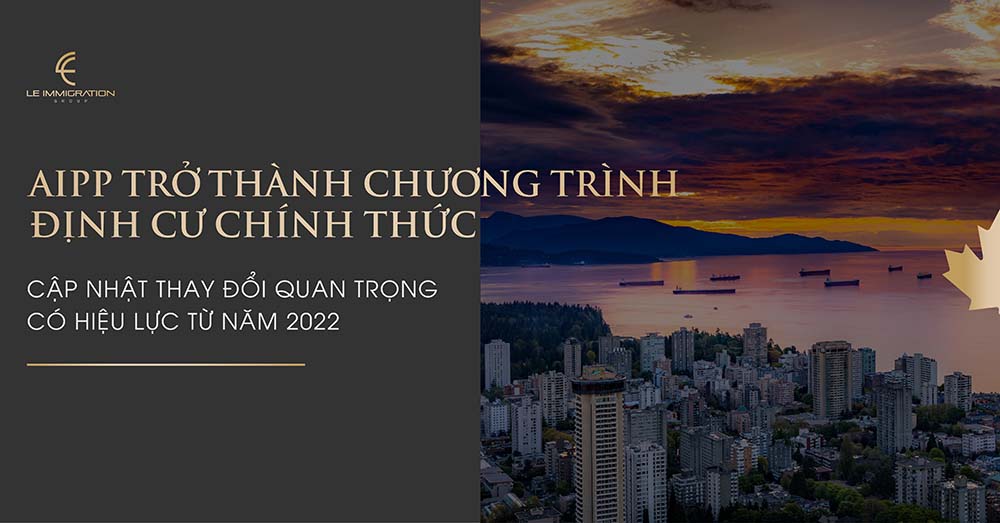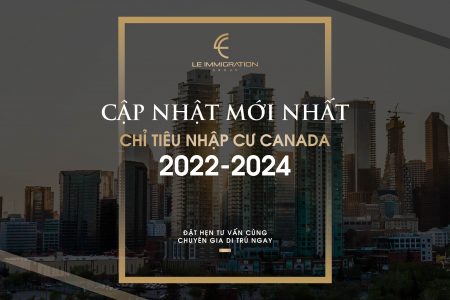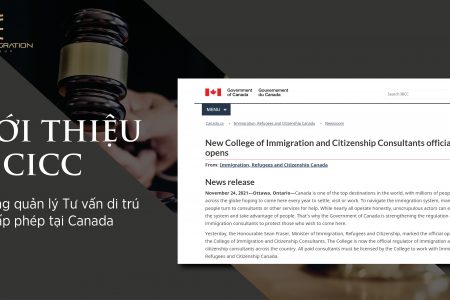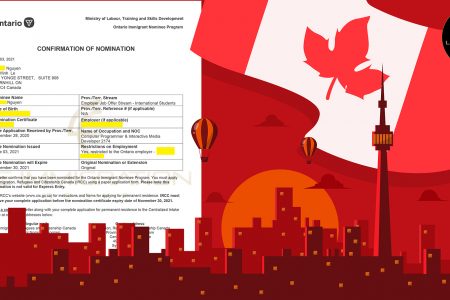From February 1, 2022, the Atlantic Immigration Program AIP becomes the official and permanent program
The AIPP (Atlantic Immigration Pilot Program) is a pilot program launched in March 2017 to help business owners to foreign workers, and international students to study, live, and work in one of the four Atlantic regions, including: Prince Edward Island, New Brunswick, Nova Scotia, and Newfoundland and Labrador.
AIPP began to gain traction in 2018 along with other Provincial immigration programs in the region, and has brought 14,000 immigrants to the Atlantic. The AIP alone granted 10,000 new permanent residents after 5 years of piloting. Employers participating in the AIP have issued more than 9,800 job offers in key areas including: healthcare, healthcare, manufacturing, accommodation & food services.
Most notably, more than 90% of immigrants continue to live and work in the Atlantic after 1 year. The retention rate is much higher than other programs. Because of this effective program, on December 17, 2021, Mr. Sean Fraser – Immigration Minister of Canada officially announced to make the AIPP program permanent, with its new name AIP (Atlantic Immigration Program).
The AIPP ended on December 31, 2021, and officially became an AIP program on February 1, 2022 with the goal of attracting 6,000 immigrants per year. Applications that have received the Endorsement Certificate are still allowed to apply for PR until the end of March 5, 2022.
AIP – Some important changes from 2022
Changing its name from AIPP to AIP from January 1, 2022, this program also has a few more minor changes:
Changes in working experience
Old Requirement: Applicant must demonstrate working experience within the last 3 years. In that 5 years of working, employees must work at least 1,560 hours/year and 30 hours/week.
This job must be in one of the following National Occupational Classification (NOC) skill levels:
- Occupations in skill NOC 0 (management jobs including restaurant manager, junior manager).
- Occupations in skill NOC A (professional jobs that require a university degree, including doctors, dentists, architects).
- Occupations in skill NOC B (technical jobs and skilled occupations including chefs, electricians, plumbers).
- NOC C Skill Occupations (intermediate jobs that often require high school and/or job-specific training, including long-haul truck drivers, food and beverage servers).
In which, the working experience must include:
- The jobs in the NOC skill description for that occupation.
- Most of the main duties in that occupation’s NOC skill description.
Changes in foreign language requirements
Immigrating to the AIP Atlantic Immigration Program, you must demonstrate language proficiency in English or French, with an approved language test. The test must demonstrate all 4 capacities of writing, reading, listening and speaking.
To measure language proficiency, the government accepts:
- The Canadian Language Benchmark (CLB) for English.
- Canadian Language Benchmarks (CLBL) cho tiếng Pháp.
Old requirement: Applicant achieves CLB 4, for all NOCs 0,A,B,C
New requirements: Minimum language requirements based on industry skill level:
- For occupations in NOC O, A, B skills: IELTS general 5.0 is required and all skills are 5.0.
- For occupations in NOC C skill: IELTS general 4.0 is required, unchanged from the AIPP program.
Changes in requirements for employers
Employers who want to issue Endorsements must attend 2 training courses. It is understood that employers must understand the program overview, their roles and responsibilities in the application process.
In general, the AIP has only a few changes related to the classification of occupations in skills NOC 0, A, B, C, with reference to working experience and foreign language proficiency, but there is no other significant difference to the old one. Therefore, the program is still one of the top choices for skilled immigrants who want to live and work in Canada. If you don’t want to miss this opportunity to become a permanent resident of Canada, contact Le Immigration to be consulted and assessed by a Regulated Canadian Immigration Consultant (RCIC)!
CONTACT INFORMATION
Address:
- 1275 Finch Avenue West, Suites 809 & 810, Toronto, Ontario, Canada M3J 0L5.
- Tầng 17, TNG Tower, 180-192 Nguyễn Công Trứ, P. Nguyễn Thái Bình, Quận 1, TP. Hồ Chí Minh.
- Hotline: 0936.168.599
- Email: info@minhle.ca












